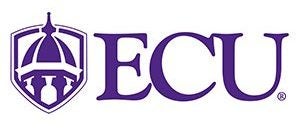
Master’s Degree in English, Concentration in Multicultural and Transnational Literatures Advising Document
On admission to the program, you will be advised initially by Dr. Kirstin Squint. As your research interests begin to focus, you will receive an advisor in your area of interest.
Important Note: As soon as you are admitted, you should begin checking your ECU email account regularly for important communications about registration, program requirements, etc.
Your course of study should include the following considerations: Requirements = Total of 33 hours (s.h. = semester hours)
Core: ENGL 7005 Bibliography and Methods – 3 s.h.
This course lays the foundation for every other course you will take, so you should take it as early in your course of study as possible. ENGL 7005 should be available in on-campus and DE formats at least once a year.
Electives: (Courses in any English concentration or in another department appropriate to the student’s academic and career goals, selected in consultation with advisor) – 6 s.h.
If you are a campus student with a Teaching Assistantship, you must take ENGL 6625 Teaching Composition for 3 s.h. of your 6 s.h. of non-Concentration electives.
It is recommended that you take either ENGL 7070 Literary Theory or ENGL 7080 Cultural Studies Theory and Method. The study of theory provides conceptual foundations for the way readers approach texts and for the connection between texts and cultures, and it provides a philosophical basis for the way we approach and conceive of our work as scholars.
Other English courses that mesh especially well with the concentration include:
ENGL 6215 American Literature to 1830
ENGL 6515 Advanced Studies in Children’s Literature (race and ethnicity in children’s literature)
ENGL 7630 Cultural Rhetoric and Writing
Electives may also include any course in the English program of particular interest or usefulness to you, or courses in other departments such as History, Psychology, Education, Political Science, Foreign Language and Literatures (except FORL 6000, though it may be used to meet the requirement for reading knowledge of a language other than English) that are especially suited to your research or professional interests, as approved by your MTL advisor and the Graduate Director. FORL 6000 meets the foreign language requirement, but it does not count as part of the required 33 sh. for the MA.
Important Note: For the purposes of financial aid, full-time status is two courses per session during the summer (a very demanding schedule) and three courses during the spring and fall semesters (the maximum recommended).
Concentration: MTL courses selected from – 18 s.h.
Courses include:
- 3 s.h. to be selected from:
- ENGL 6340: Ethnic American Literature
- ENGL 6360: World Literature Written in English
- 9 s.h. to be selected from:
- ENGL 6330: Studies in Latinx Literatures
- ENGL 6340: Ethnic American Literature (if not selected above)
- ENGL 6345: Jewish Literature
- ENGL 6350: Studies in Native American Literature
- ENGL 6360: World Literature Written in English (if not selected above)
- ENGL 6370: Caribbean Literature
- ENGL 6375: Middle Eastern Literature
- ENGL 6380: Studies in African Literature
- ENGL 6420: Studies in Asian American Literature
- ENGL 6450: Studies in World Indigenous Literature
- ENGL 6460: Studies in African American Literature
- ENGL 6475: Multicultural Women’s Literatures
- ENGL 6480: LGBTQ+ Theories and Literatures
- ENGL 6485: Disability Studies Theories and Literatures
- ENGL 6490: Multicultural and Transnational Poetry
- ENGL 6495: Transnational Sinophone Cinema
- ENGL 6515: Advanced Studies in Children’s Literature
- ENGL 7080: Cultural Studies Theory and Method
- ENGL 7300: Directed Reading in Multicultural and Transnational Literature
- ENGL 7350: Seminar in Multicultural and Transnational Literature
- ENGL 7365: Selected Topics in Multicultural and Transnational Literature
- Other special topics graduate courses in related areas may be approved on an individual basis.
The Concentration consists of two threads: Multicultural (usually understood to refer to U.S. ethnic literatures); and Transnational (world literatures from regional, national, international, diasporic, colonial/postcolonial, and global perspectives). ENGL 6340 and ENGL 6360 provide cross-cultural comparative introductions to these two threads, and it is recommended that you take these two courses early in your studies. The ENGL 7350 Seminar weaves the two threads together, again in cross-cultural comparative contexts, and is recommended as a capstone to your course of study (however, it won’t always be possible to take the courses in this order due to scheduling constraints).
Note: Descriptions of courses offered in a given semester will be found on the Departmental web page: http://www.english.ecu.edu/course-information/
Important Note: Save all papers and assignments (originals and graded copies with instructors’ comments) that you complete in the program. You are likely going to need them for your Thesis or CAP, for recommendation letters, and/or for doctoral program applications.
Comprehensive Assessment 6 s.h.
There are two ways to meet the comprehensive assessment requirement: 1) the Thesis, or 2) the Comprehensive Assessment Project.
The Thesis requires 6 s.h. of ENGL 7000 Thesis. The Thesis involves:
- A Prospectus Meeting with a committee of two faculty members from the Dept. of English, at which the student presents and receives feedback and suggestions on a Prospectus (3 -5 double-spaced pages) and Working Bibliography. The student selects a Thesis Director who will assist the student in choosing the rest of the committee. A fourth committee member may be invited from the English Dept., from another ECU Dept., or from another institution, who offers expertise beyond what the other members may be able to provide. The Prospectus Meeting will be held no later than the third week of classes during the semester in which the student plans to complete the thesis, and may be conducted by conference call for DE students.
- The Thesis (approximately 50-75 pages, excluding prefatory materials, references, and appendices), prepared in accordance with the requirements and directions for electronic submission provided on the Graduate School’s thesis website. Any formatting issue not covered here should follow current MLA style. The final draft of the thesis should be submitted to the Committee three weeks prior to the Defense date.
- An Oral Defense meeting with the Thesis Committee (1 – 1 ½ hours), which may be conducted by conference call or videoconference for DE students.
The Comprehensive Assessment Project involves:
- An additional 6 s.h. of coursework (to replace thesis hours). These can be any appropriate courses in ENGL or another Department, as long as all other requirements for the MA have been met. (Note: No more than 6 s.h. total taken outside the English Department can count towards the MA). CAPs should be formatted according to MLA style.
- A Planning Meeting, with a committee of two English faculty chosen according to procedures outlined for the Thesis Committee, to be held no later than the third week of classes during the semester in which the student plans to complete the Project. At this meeting, the student presents a Project Outline (2-3 pp.) and a Working Bibliography of sources. The Planning Meeting may be conducted by email and/or conference call for DE students.
- The Project itself (18-25 pp.) and a Framing Essay (5-6 pp.) relating the project to the Bibliography as well as explaining the theoretical framework of the project (to be submitted to the committee no less than two weeks before the Defense is scheduled).
- An Oral Defense (1-1 ½ hrs.), at which the student presents the Project and its theoretical framework to the committee and answers questions posed by the committee related to the problem the project addresses, the methodology used, the utility of the project/application in curriculum or other work environments, and the relationship of the project to the student’s graduate coursework. The Defense may be conducted by conference call or videoconference for DE students.
Distance Education students are invited (but not required) to come to campus for the Prospectus/Planning Meeting and/or Defense of the Thesis or CAP (or at any stage of their program) for a more personal exchange with faculty.
Important Note: You should put your committee together and have significant work done on your prospectus or CAP plan the semester before the one in which you intend to complete and defend your Thesis or CAP. It is also a very good idea to schedule the Prospectus or Planning Meeting itself the previous semester as well; although it is not required, this plan allows a much more reasonable period of time for completion of your project.
Reading knowledge of a language other than English
Students seeking to demonstrate a reading knowledge of a foreign language will be assessed in one of the following ways:
A. Passing an advanced course in a foreign language (ECU equivalent of 2000-level or above) within five years prior to admission to the graduate school.
B. Passing a 2000-level course at ECU approved by the Department of Foreign Languages and Literatures in a language approved by the DGS.
C. Passing a graduate-level reading knowledge course offered by the ECU Department of Foreign Languages and Literatures (currently FORL 6000). FORL 6000 is offered regularly as a DE course (usually in the Spring) and is the simplest way for DE students to meet this requirement. For further information about this course, see the Catalog.
D. Passing a translation project supervised by a member of the ECU faculty who has been approved by the Director of Graduate Studies (DGS). The project will be a translation of scholarly prose chosen by the student in consultation with the faculty member. The translation should be 2500 words (approximately ten double-spaced pages). The supervising faculty member will notify the DGS in writing of the successful completion of the project.
For additional information, please see the Master of Arts in English and the Graduate Catalog (catalog.ecu.edu).
If you have questions concerning the admissions process or registration, please contact the Graduate English Office Administrative Assistant, Timothy Putnam (englishgrad@ecu.edu; 252-328-6660) or the Graduate Director, Dr. Brent Henze .
Transfer Credit
If you have taken courses elsewhere that you would like to be considered for transfer credit, after being admitted to the program, consult with your advisor about what courses you would like to be reviewed and whether the courses would be appropriate substitutes for any of the required courses or would be free electives. After consultation with your advisor, forward your request that transfer credits be accepted to the Graduate English Office (englishgrad@ecu.edu). According to ECU policy, only 6 s.h. of transfer credit can be used towards the MA in English. For more information, see the Academic Regulations for Transfer Credits in the ECU Graduate Catalog.
